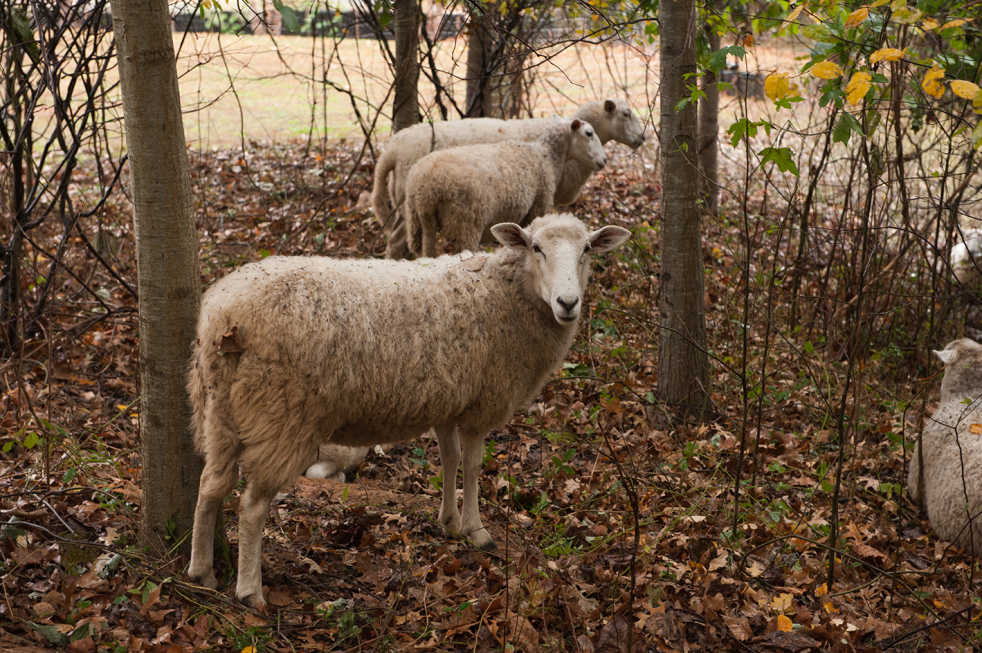For the fifth consecutive semester, Tech’s campus population will temporarily grow to thousands of students and several hungry, four-legged mammals. While students have gone out of their way to visit the guests, they are actually on campus for an express purpose.
Kudzu, an ornamental shrub initially brought from Japan to the United States, was meant to be used to counter erosion thanks to its rapid and thorough growth. However, the vine eventually proved too much for the farmers of the South after they discovered that it could grow at an uncontrollable rate of 12 inches per day, or roughly 60 feet per season. Kudzu continues to grow in the southeast at a rate of 150,000 acres, or 375 Tech campuses, annually.
Landscape professionals at Tech have found a means of controlling the kudzu, albeit an unconventional one in the world of landscaping. Three years ago, Anne Boykin-Smith, master planner and landscape architect in Tech’s Capital Planning office, took notice of the overgrown kudzu just north of the MSE building. After researching various methods of removing kudzu that were environmentally friendly and avoided potentially-harmful herbicides, Boykin-Smith stumbled across sheep as a means of removal.
“Sheep are more selective in terms of eating plants and will tend to eat vines and leaves up to four feet tall,” Boykin-Smith said. “Goats will eat anything, including shrubs and small trees that you want to retain and will reach taller, say five to six feet tall and completely denude the area, which is not the intent for this area of campus. Having sheep on campus is also fun, with students taking selfies with them and remembering them.”
Tech is not unique in using sheep for groundskeeping purposes. “Using sheep and goats to remove invasive species/weeds like kudzu, poison ivy and English ivy has been in practice for years,” Boykin-Smith said, “with inner city parks and private nature reserves using them to remove undergrowth. Sheep have been used to graze grass at the Atlanta airport in areas that are difficult to access. Years ago, [University of Georgia] used sheep to graze along a stream that meanders through campus because the vegetation had gotten really thick and now the stream is visible to the campus. To my knowledge, Tech has used herbicides to remove kudzu in
the past.”
This year’s flock is set to address the continuing kudzu problem in the Biotech Quad, near the Molecular Science building.
“This area was allowed to overgrow because of a construction project nearby,” Boykin-Smith said, “that prevented our staff from maintaining the area.” A high-functioning flock of sheep can defoliate an acre of kudzu in approximately three weeks, but multiple treatments are required to completely get rid of kudzu.
This semester may not be the last that students can expect to see the groundskeeping sheep.
“We expect for the sheep to be on our campus until Saturday, Oct. 22nd,” Boykin-Smith said. “[We] will evaluate whether or not they need to return to the campus in the late spring.”
